
“Many cannot believe it when they see the change in me”: The ‘safe space’ groups transforming the lives of youth in Uganda
For young people in Arua and Kampala, AKF’s ‘safe space’ groups are providing a platform to navigate the challenges of adolescence and journey into adulthood

Every weekend, over 300 adolescent girls and boys in northern Uganda’s Arua district meet in groups to discuss the challenges impacting their lives. They are part of 36 youth groups in Arua and Kampala formed under the In Their Hands (ITH) programme, implemented by the Aga Khan Foundation (AKF) in Uganda. Through research and consultation with communities, AKF identified ‘safe space’ groups as one of the most effective ways to overcome youth health and wellbeing barriers, especially for girls.
In Arua, marginalised young people face a multitude of challenges, including unplanned teenage pregnancies, unsafe abortions and drug abuse, as well as limited access to education and employment opportunities. To combat this, AKF’s ‘safe space’ groups have recently participated in a series of discussions guided by non-academic modules designed to support creative thinking, effective communication and self-confidence. They also inform young people about sexual and reproductive health rights in an engaging and accessible way.
Victor Godi, a 17-year-old from Obulukufuku village, was struggling with drug abuse when the village head encouraged him to join one of the safe space groups. His participation helped keep him occupied and informed, and he eventually stopped using drugs. “The group leader took us through the module on alcohol and drug abuse. It impacted my life because I could relate to everything he was saying which helped me to stop. Many cannot believe it when they see the change in me,” Victor said.
“Many cannot believe it when they see the change in me”
Victor Godi – group member from Obulukufuku
Kalsum Juma, who offered to host groups at her home in Obulukufuku, shared that two of her teenage daughters fell pregnant during the COVID-19 lockdown, putting financial strain on the family. She says that since attending the group meetings, “My daughters seem more settled and their behaviour has changed.”
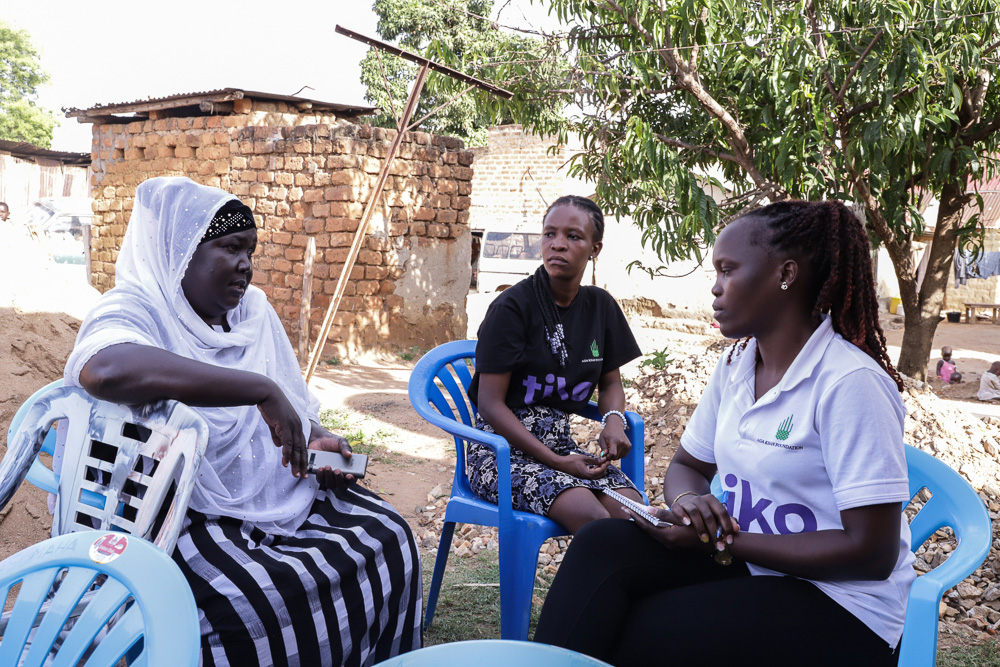
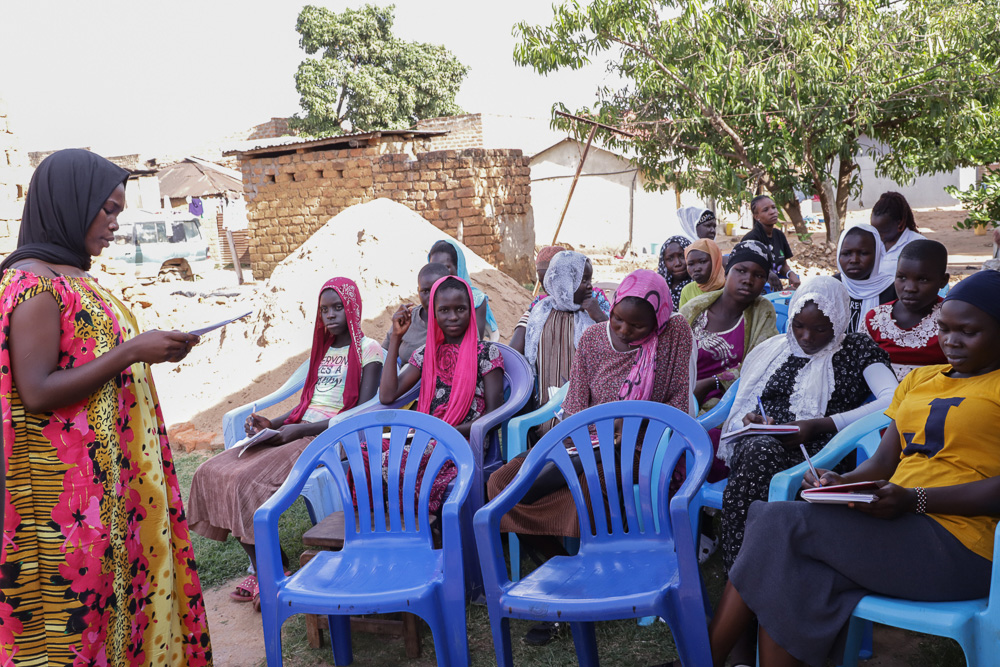
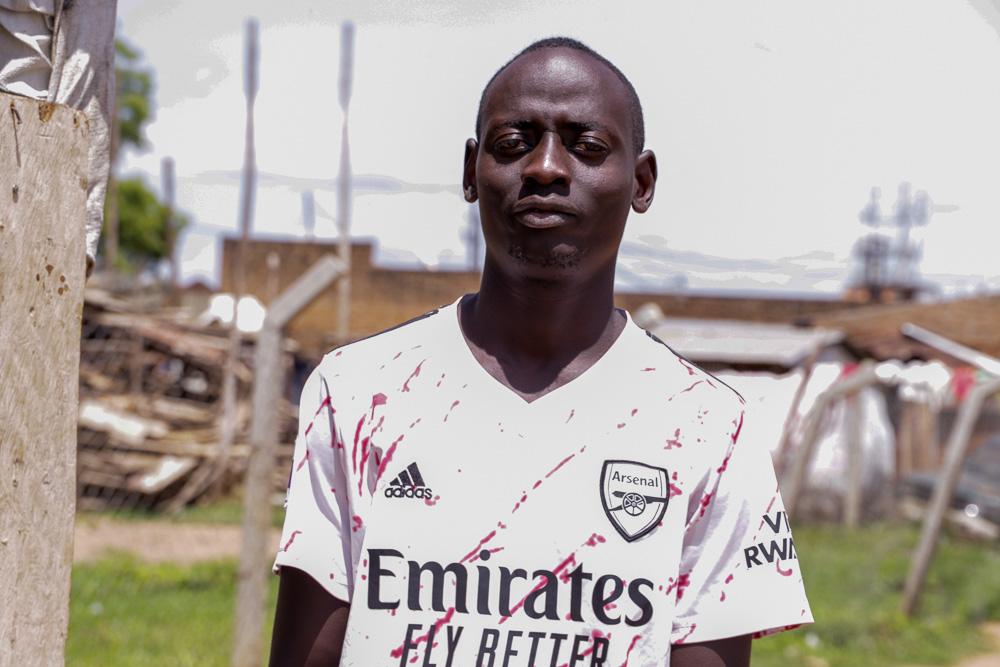
As well as educating young people in Arua about how to improve their health, the groups are also providing opportunities to tap into their entrepreneurial spirit and earn an income. Many of the group members have to travel long distances to get to the meetings, so AKF supports their attendance by paying travel expenses – around $1.30 (USD). Some young people have been saving up the leftovers of their expenses to come together and invest in innovative business ideas.
A group of girls in Ediofe – a village on the outskirts of Arua city – have started an art and crafts business with support from their group leader, Diria Jesicca, a teacher who lost her job during the pandemic. Jesicca noticed that the girls stayed around for extended periods after the meeting, and she took the opportunity to train the girls in arts and crafts which she had previously taught at school. The girls used their money to buy the materials to make products to sell, as Atyero Trinity, a member of the group explains, “Now we know how to make sandals and doormats so we can sell them. For now, we are re-investing the money so that we can make the business bigger.”
“Now we know how to make sandals and doormats so we can sell them. For now, we are re-investing the money so that we can make the business bigger”
Atyero Trinity – group member from Ediofe
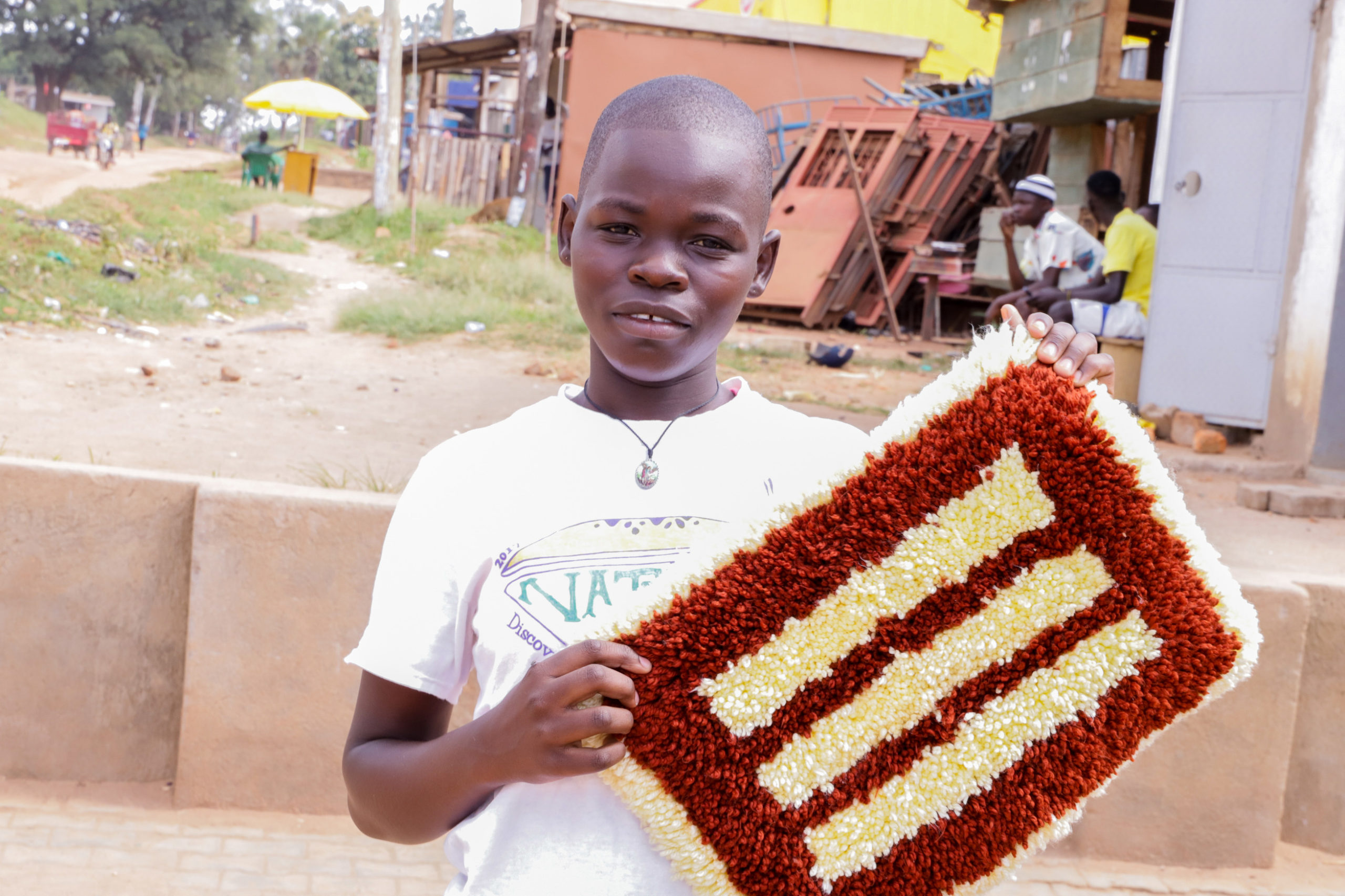
In Obulukufuku, a group of boys worked with their leader to make and sell chapatti (a popular pancake-style snack in Uganda) using savings from their travel expenses. “We realised that the cost of living was going up and we needed something that would sustain us,” explains Twaha, a member of the group. The boys make a daily profit of $4 (USD) from the chapattis they sell, which they are saving to grow their business.
Rowena Kamasai, manager of the ITH Programme says that these groups have allowed AKF to holistically address the information and wellbeing gaps for youth, and have also been an opportunity to link adolescent girls to sexual and reproductive health rights (SRHR) services and products. One of the most important aspects of this initiative is that there is positive peer influence, and this has been made clear by the stories of impact shared by youth group members.
“The sustainability of the groups beyond the ITH programme is a key priority for AKF moving forward. To encourage this, we intend to provide an innovation fund to groups demonstrating the most sustainable and innovative ways to improve SRHR outcomes for their communities,” Rowena added.
In addition, AKF is supporting District Integrated Committees on Adolescent Health (DICAH) to identify stakeholders including government programmes and private entities that can support these groups and enable better coordination of new youth-focused initiatives in the future. For example, community leaders in Arua are already requesting that the groups be allowed to accommodate more that 15 members so that more youth can benefit – growth like this will require support and infrastructure from other stakeholders, and AKF is committed to bridging the gap beyond the life of the ITH programme.
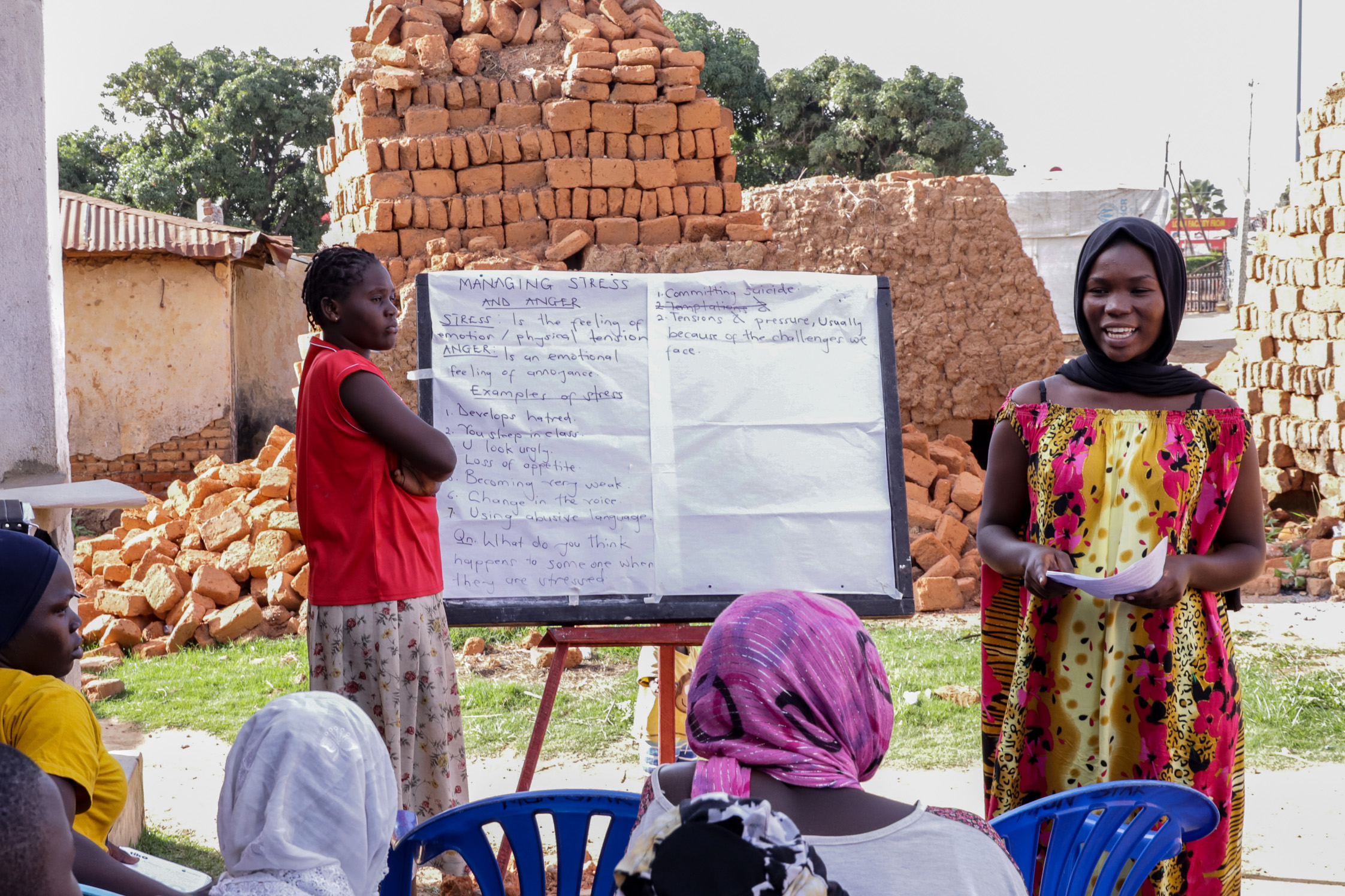
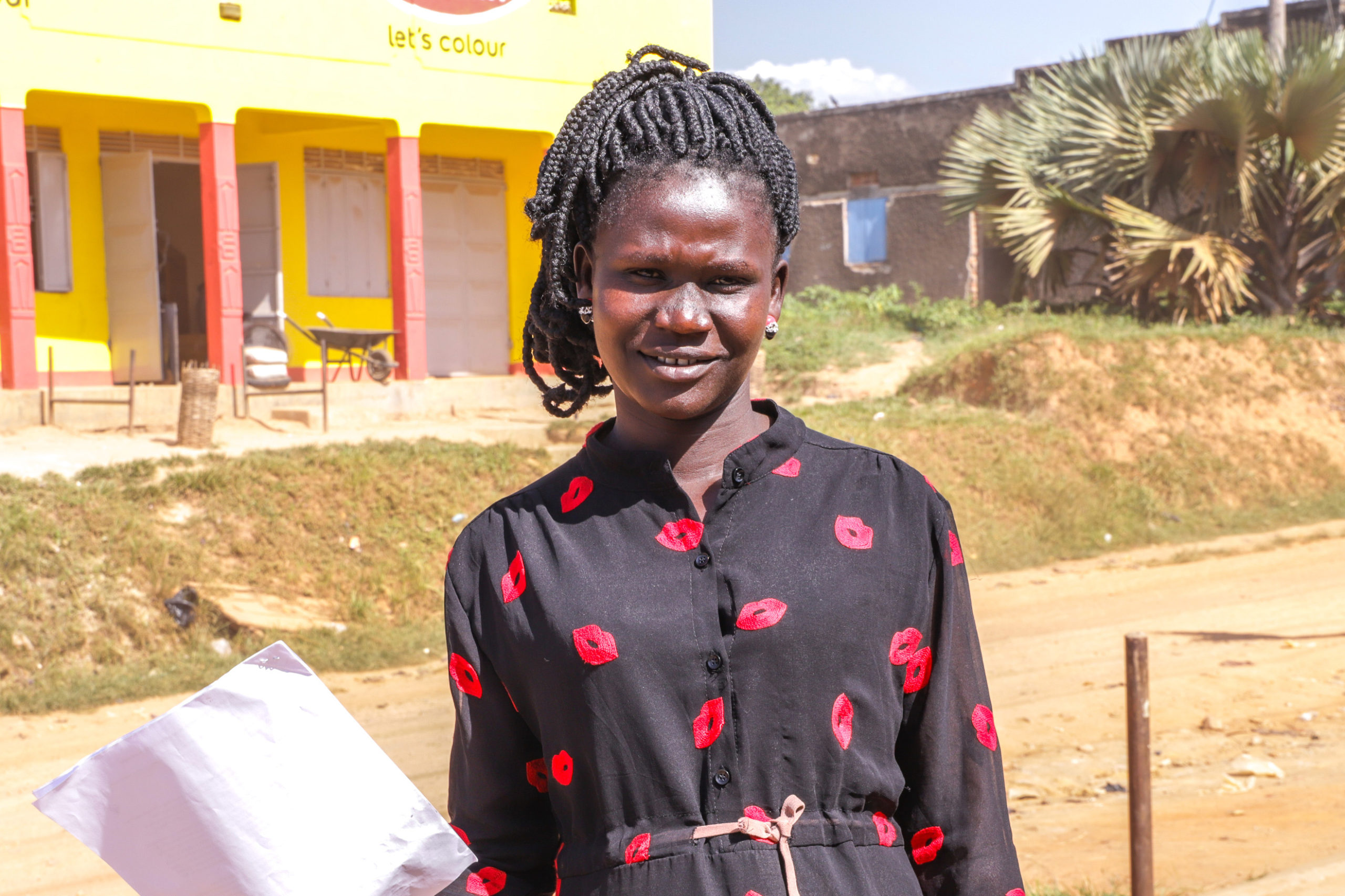
For young people in Arua and Kampala, AKF’s ‘safe space’ groups are providing a platform for them to navigate the challenges of adolescence and journey into adulthood equipped with skills, knowledge and experience to grow their independence and earn a living.
This article was written by Joshua Mirondo, Communications Officer at AKF Uganda.
Related News & Stories


The carry all: Meet Richard in Uganda

Digging deeper: Meet Esther in Uganda
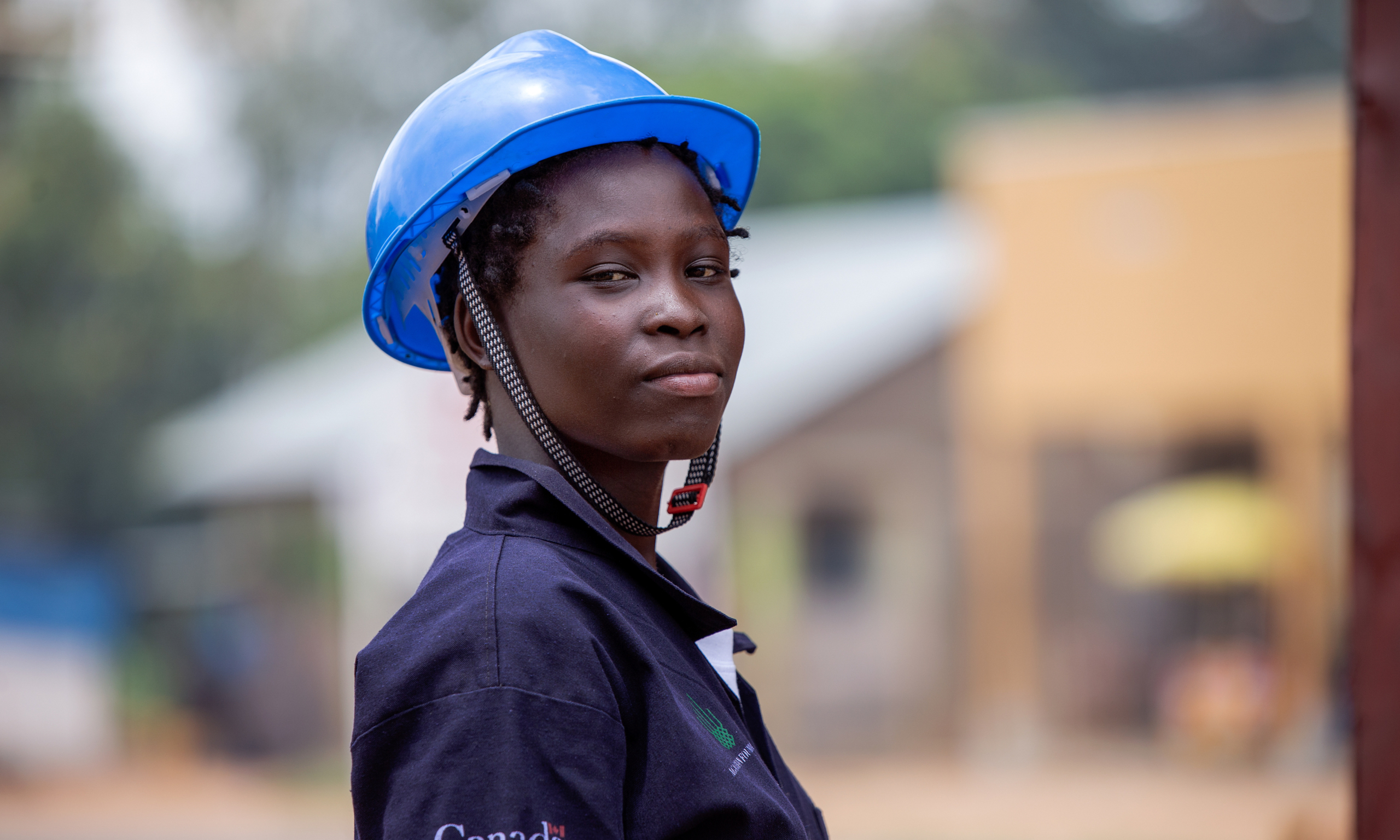
Shifting gears: Meet northern Uganda’s young female motorcycle engineers
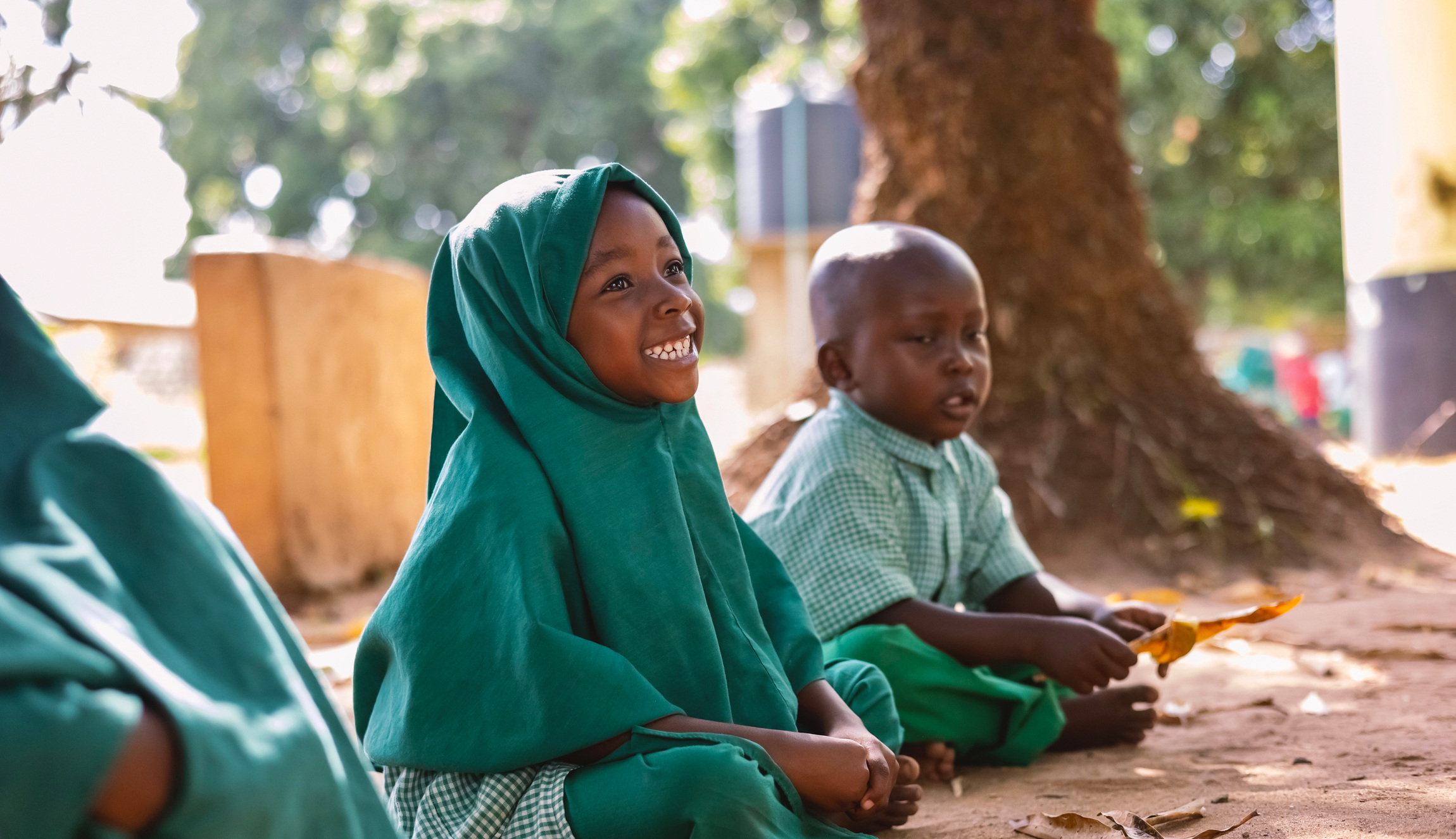
Celebrating 40 years of the Madrasa Early Childhood Programme
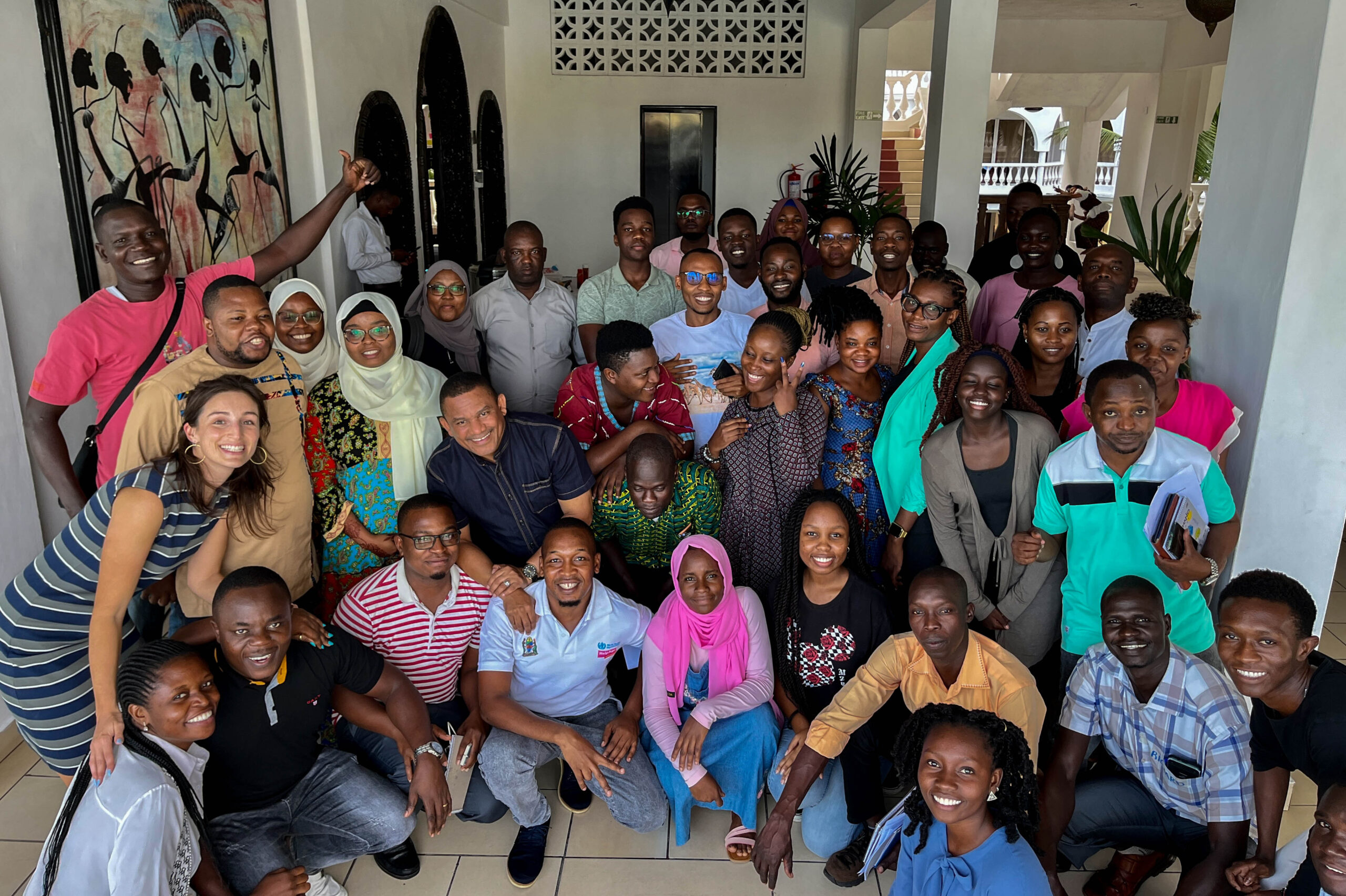
Investing in community-led innovation: AKF launches Human-Centred Design coaching course in East Africa

Support our work Your donations are helping us build a future where we all thrive together.